Clashes erupted between riot police and migrants early this morning in northern France, with projectiles thrown and fires lit in the street.
Dramatic pictures and video show a group throwing rocks in the direction of the officers early on Friday, while fires blazed in the road near a park in Gravelines.
The confrontation is said to have been triggered when police arrived to stop the launch of a small boat, likely bound for Britain, from a canal in the town.
A number of men who faced off with police were wearing life jackets, according to reporters at the scene.
The incident involving the group of migrants and Gendarmerie and Police Nationale officers, who were equipped with shields, helmets and tear gas.
It lasted for about 20 minutes at around 5.30am and police reportedly used tear gas to disperse the group.
Yesterday morning, migrants were filmed running into the water and boarding a dinghy at Gravelines beach.
Pictures show people running out to meet the inflatable boat, which was dangerously overfull with dozens of young men clinging onto the sides in a desperate attempt to cross the channel.
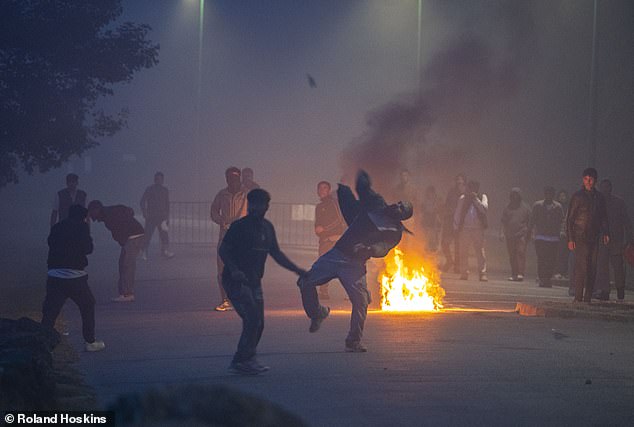
A man is seen throwing projectiles towards police during clashes between migrants and police
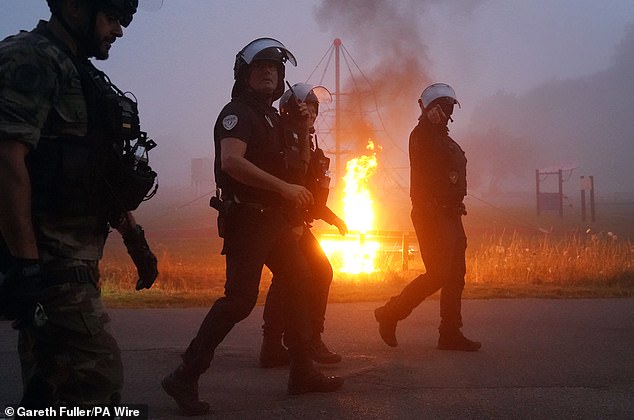
Riot cops are seen near a fire amid clashes with migrants early this morning in France
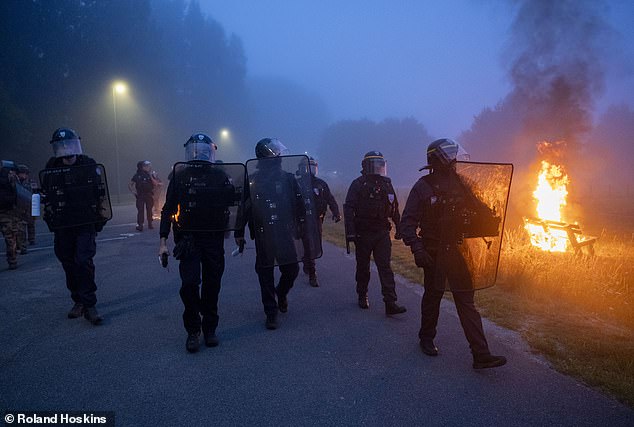
French riot cops march along a round in Gravelines, northern France
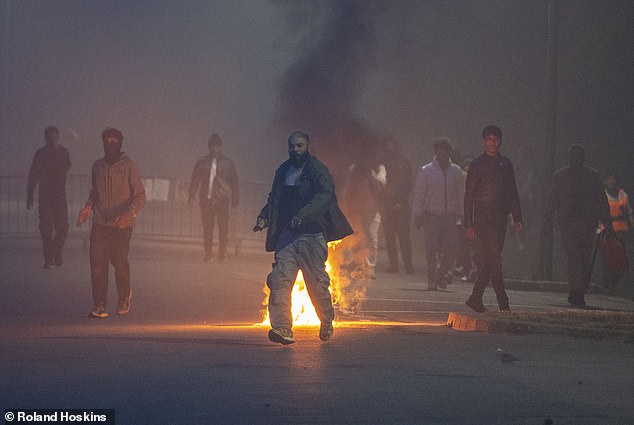
A group of men, some wearing masks, are seen at a distance from police with a fire blazing in the background
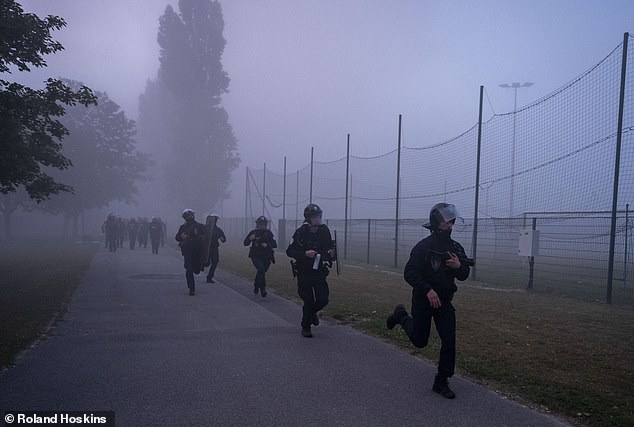
French riot police are seen running as they attempt to stop the unrest in Gravelines
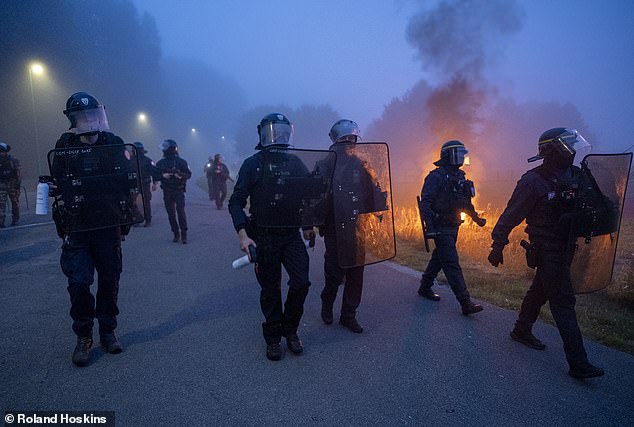
Riot police with shields and tear gas are seen at the scene of the unrest
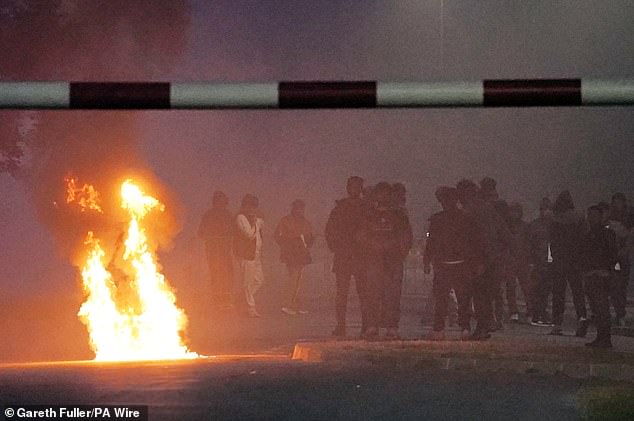
Fires blazed in the area as migrants faced off with cops and gathered in large groups
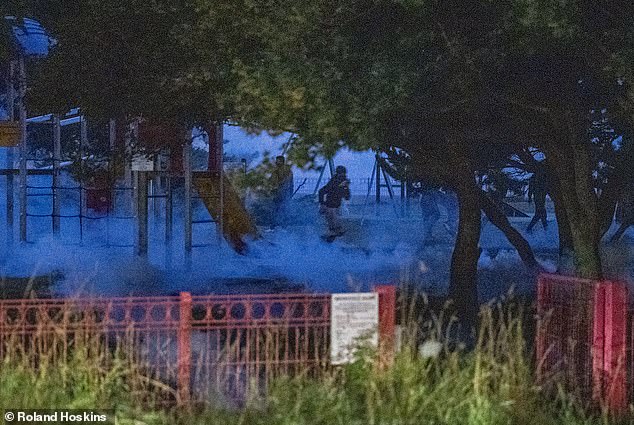
Tear gas was reportedly used to disperse the group of migrants
French police have employed tougher tactics in tackling the small boats crisis in recent weeks, according to Downing Street.
Footage emerged earlier this month of officers slashing a dinghy packed with migrants and dragging the deflated vessel back to dry land, prompting anger from refugee charities.
But footage which emerged yesterday showed the moment French coastguard members off the coast of Gravelines handed out lifejackets to migrants about to cross the Channel to Britain.
Officials are seen passing life jackets to migrants in a dangerously full dinghy, rather than stopping it from heading out into the open sea.
No police were seen on the beach as the group boarded the black inflatable boat.
Witnesses saw one boat drop off several men at around 5am, who went into the sand dunes, before a second boat came close to shore, circling until the migrants appeared on the beach.
The people, including a family with two children, put themselves into groups before trying to climb onto the boat.
Around 40 people, believed to be about half of the full group, then left on the dinghy unhindered.
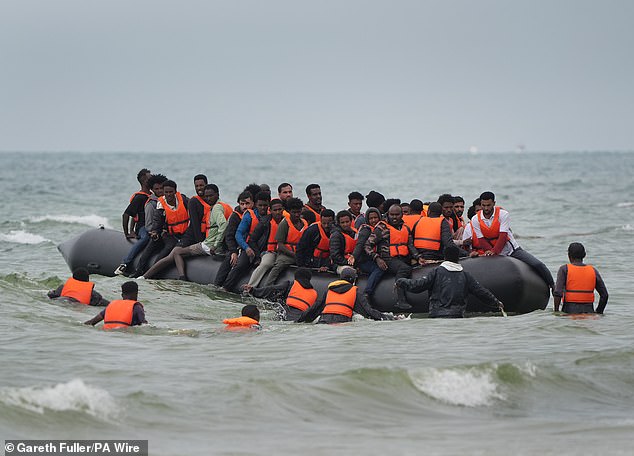
People scramble to board a small boat near Wimereux in France yesterday
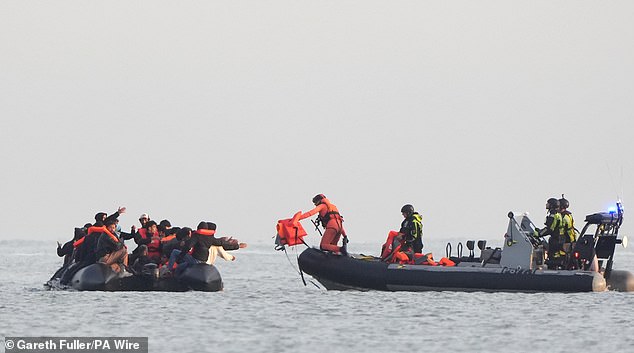
Migrants on board an inflatable boat are handed lifejackets by the French authorities as they leave from Gravelines, France, heading across the Channel to the UK today
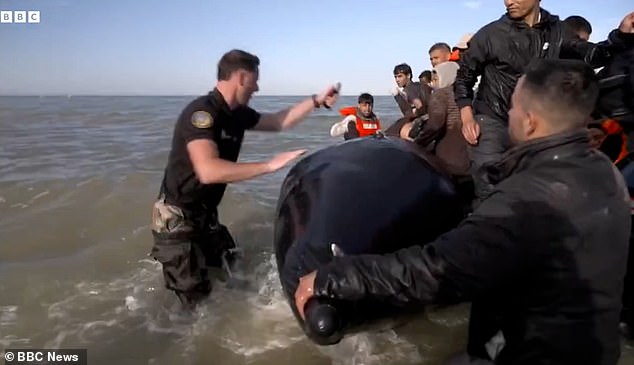
Dramatic scenes unfolded this morning on a French beach as cops deflated a boat carrying migrants
More than 22,500 people have arrived in the UK after crossing the English Channel so far in 2025, a record for this point in the year.
The same milestone was not hit until mid-to-late August in previous years, including 2022 – the year which went on to see a record annual total of 45,700 arrivals.
Last week, Prime Minister Sir Keir Starmer and French President Emmanuel Macron agreed a one in, one out migrant returns deal in a bid to crack down on the crossings and the people smuggling gangs who operate them.
Leaks had suggested 50 migrants a week, around one in 17 arrivals, would be sent back to France initially. But that was seemingly not signed off by the leaders.
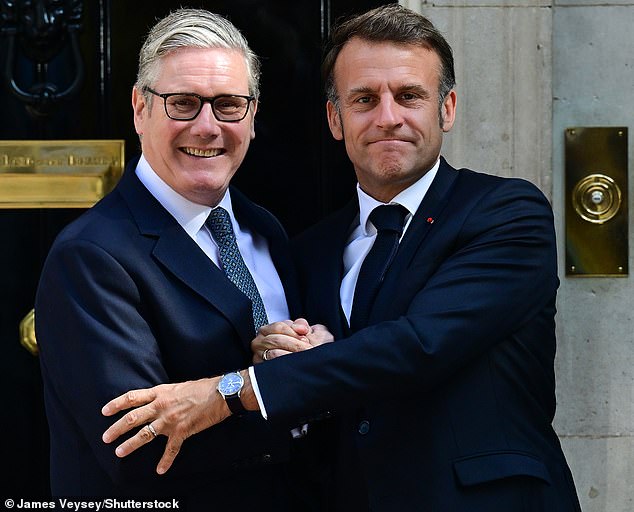
Sir Keir Starmer and Emmanuel Macron shake hands on the steps of Number 10 after they agreed a deal to tackle migrants crossing to Britain
Sir Keir met with German Chancellor Friedrich Merz on Thursday where he also praised Berlin’s plans to strengthen laws to disrupt small boat crossings by the end of the year.
The PM said the countries were sending a ‘clear sign we mean business’ as he and the Chancellor signed the first bilateral treaty since the Second World War.
It includes moves to close a loophole that has meant people-smuggling gangs could use Germany as a hub to store equipment without danger of prosecution.












